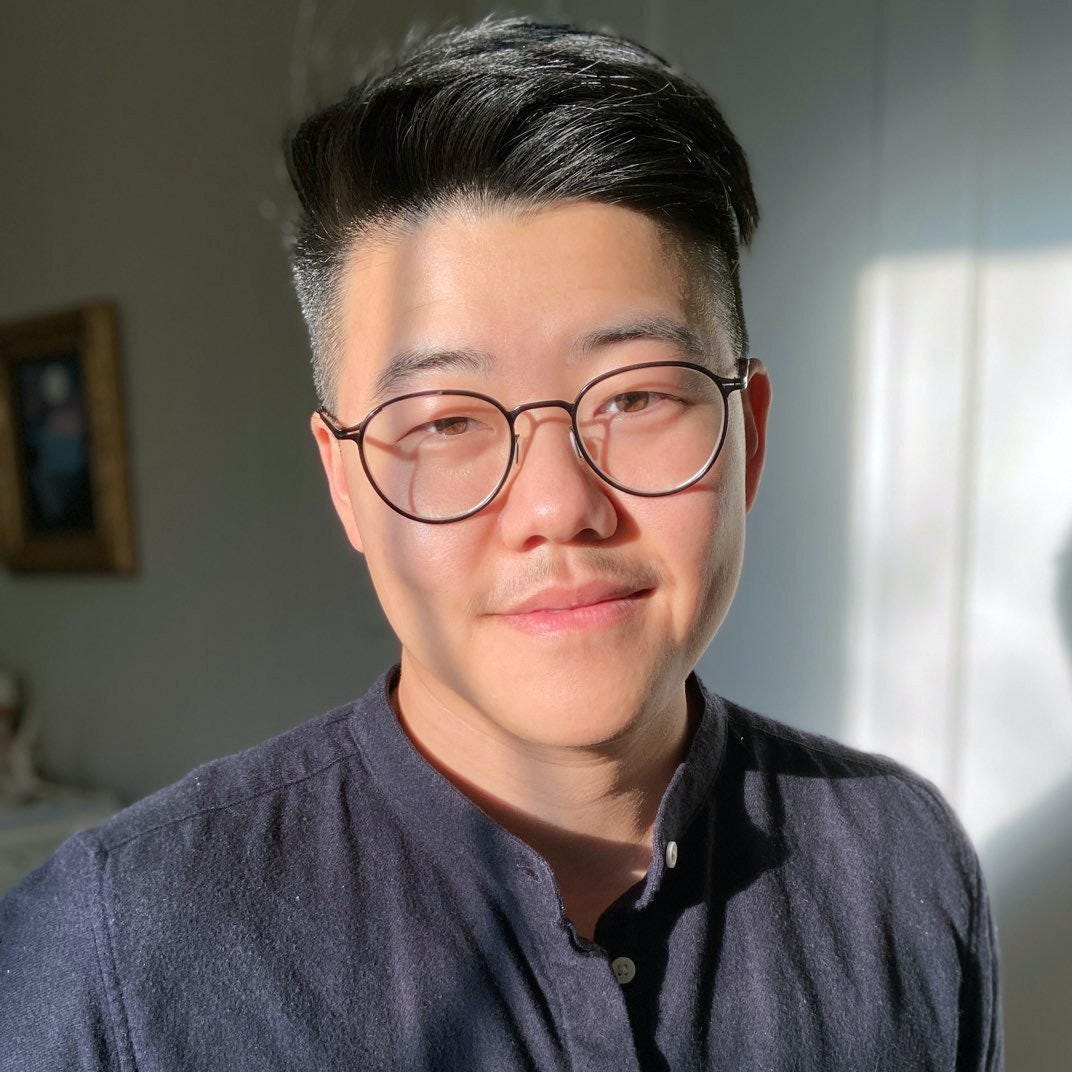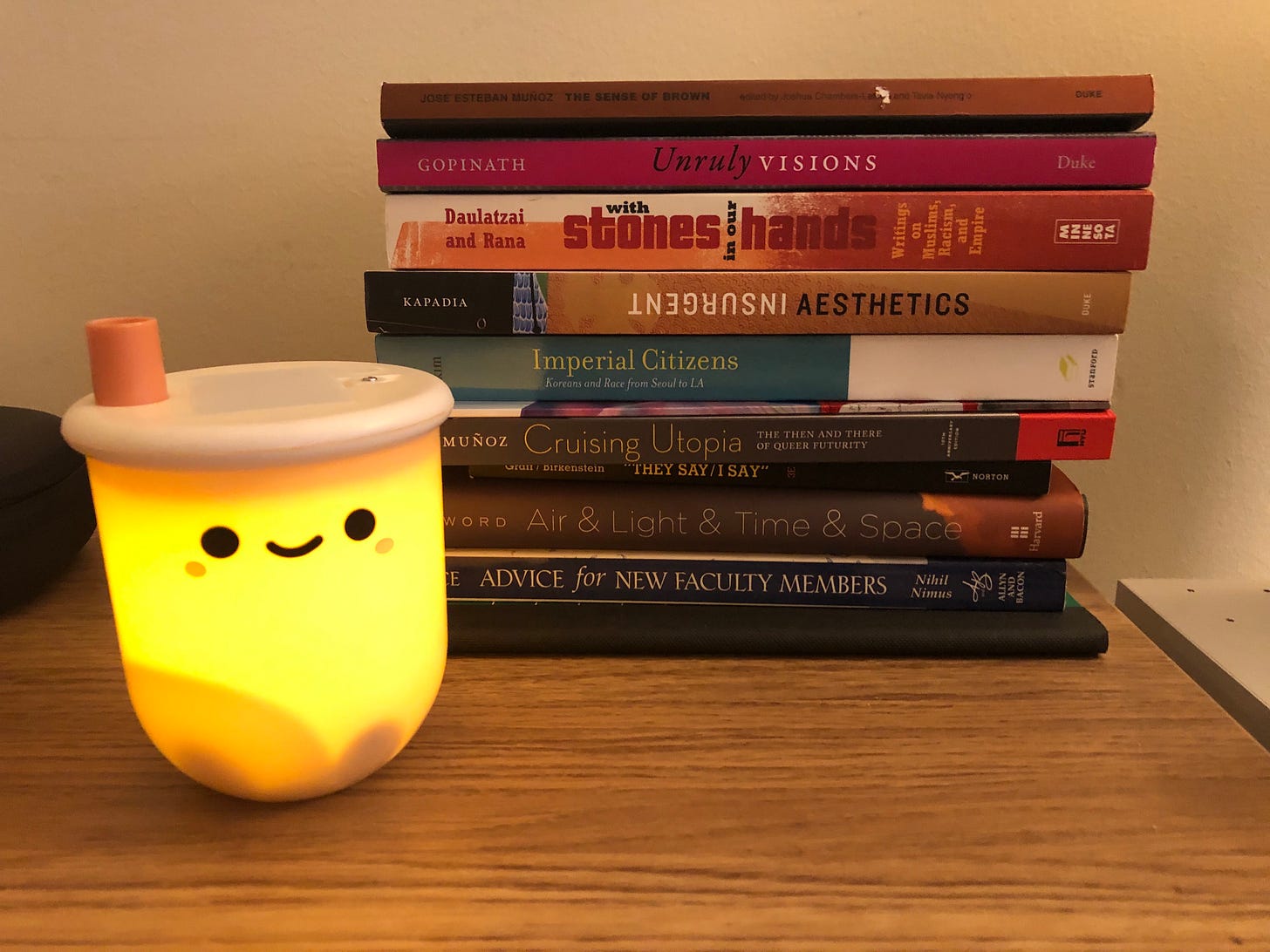67. 💬 embracing contradiction 💬
thinking about the messiness of racial formation
Hello, and happy Monday.
Last week was filled with "adulting" tasks. So much so, that it took up most of my week. 😬 This week's letter to you is going to be a bit shorter, but I'll be back next week with the "Still processing" section!
📚 Still reading.
Kumar, Deepa. Islamophobia and the Politics of Empire: 20 Years After 9/11. New York: Verso Books, 2021.
A few weeks ago, I wrote about watching a book talk for Deepa Kumar's Islamophobia and the Politics of Empire. Last week, I was finally able to get my hands on a copy to read, and it definitely did not disappoint!
Kumar's main argument is that anti-Muslim racism is fueled by and embedded in the process of empire-building. Her study stretches from the 15th century to the age of Trump, showing how Western discourse around Islam has shifted over time to inform the way that racism has bolstered the power of empire-building, specifically in the United States. While earlier centuries saw the Othering of Muslims, Arabs, and other non-Western communities through Orientalism and "protoracism," it was really in the post-World War II era, when the US became the global hegemon, that anti-Muslim racism began to take shape for purposes of maintaining that hegemony.
Just as I wrote in my reflection on Sarah Gualtieri's Between White and Arab, I was particularly struck by the way that Kumar embraced contradiction and messiness of Arab & Muslim racialization over time. She writes:
To point to changes, complications, and contradictions within anti-Muslim racism is not to erase its potency but to show that it is neither straightforward nor simple. It is a complex phenomenon that needs to be understood at many levels. It therefore requires us as scholars and activists to eschew a tendentious approach, one that seeks out the cases and examples that strengthen a particular argument while ignoring those that don't and to instead study the entire phenomenon with all its complications.
Not only does Kumar call for an attunement to contradiction within history & scholarship, she argues that it is actually fundamental to the argument that she puts forward about anti-Muslim racism & its importance to empire-building:
Even while those with power exercise hegemony, because the imperial terrain on which races are made and unmade is unstable, not least due to resistance, it creates the conditions for unexpected outcomes. Contradiction therefore is inherent to the system. Moreover, contradiction is also the basis of change.
She goes on to show the importance of contradiction many times over in her book—from the time of European Orientalists producing knowledge on "the East" to the divergences & convergences of liberal imperialist & neoconservative blocs of US policymakers. The contradictions produced about Muslims over time is what shows us that race is a social construct, much like when we juxtapose the prerequisite cases of Ozawa and Thind in our courses.
If you are someone who may not be a frequent reader of academic texts, but still find this work interesting, I highly recommend picking up this book. Its arguments are historiographical, which means that Kumar's arguments are built on the work of other scholars in a wide variety of fields. So, you get a sense of the landscape of current scholarship around empire and anti-Muslim racism, but in a way that is incredibly accessible. Kumar's ability to distill high-level arguments into language that can be understood by folks outside of the academy is incredible. It's a great book for those who want to learn more about this process of racialization but don't know where to start. Just start here.
🌀 Still consuming.
In the bookshop:
Currently Reading: Bel Canto by Ann Patchett
On deck: Detransition, Baby by Torrey Peters
💀 re: above tweet
I loved this prompt on Ekphrastic Writing from The Isolation Journals.
This job ad seems absolutely unreal (in the best way possible).
When I was in college, I interned for McSweeney's, which at the time housed The Believer. I recently learned that The Believer will no longer be published, and this makes me deeply sad.
2 amazing horror film recs for #spookyszn🎃: The Vigil & His House.
The bedtime rituals of 11 current artists.
📖 Book club corner.
For October's tiny driver book club (WHICH IS TONIGHT!!), we will be reading selections from Yanyi's The Reading and be joined by Yanyi himself!

If you don't know about Yanyi or his amazing newsletter, The Reading, let me be the first to tell you that his words have been the fodder for much of my own conceptualization of what it means to be a writer. Yanyi himself is a poet. He is the author of Dream of the Divided Field (One World Random House, forthcoming 2022) and The Year of Blue Water (Yale University Press 2019), winner of the 2018 Yale Series of Younger Poets Prize. His newsletter, The Reading, is a creative writing advice column. Once a month, he answers a reader letter about writing and the creative process.
I've been such a fan of Yanyi's work for so long, so it is quite the honor to have him join us for this very special book club! Folks who sign up for the book club will get a GDrive link with a curated selection of pieces from The Reading in the registration confirmation email.
🐶 A pup-date.
We're doing a throwback this week!! Here is a picture of Higgins as a puppy from the archives! 💌 (Obviously, he has a dirty nose because he is a curious fellow!)
As always, thanks so much for reading through, and I'll see you in the next one!
Warmly,
Ida






